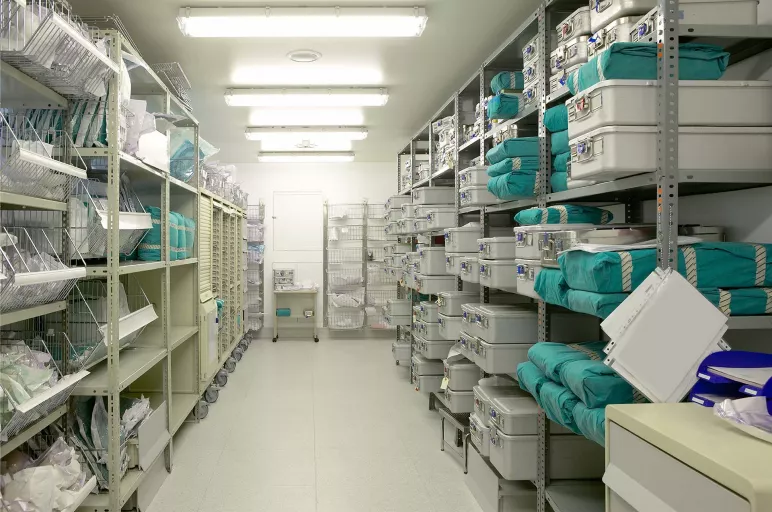
Challenges of Running a Pharma Cold Chain (And How to Overcome Them)
- Pharmaceutical drugs are sensitive to extreme temperatures, light and humidity.
- Pharma cold chain must provide a temperature-controlled environment to ensure that drugs are safe for consumption.
- It should also minimize the risk of product spoilage and recall.
December 05, 2022 | Supply Chain Strategy
Pharma companies rely heavily on the efficient functioning of their supply chains. Here’s why.
The production and distribution of pharmaceutical drugs requires careful monitoring and tracking to ensure that products stay safe for consumption after packaging, shipping, and storage. A well-managed pharmaceutical cold chain reduces the risk of product spoilage, which can be especially dangerous in the case of medicines.
In this blog post, we will discuss the importance of pharma cold chain and its challenges. You will learn some useful insights on how to efficiently run and manage a pharma cold chain.
What is a Pharmaceutical Cold Chain?
A pharmaceutical cold chain is a controlled and monitored environment that ensures product safety during packaging, shipping, and storage. In order to maintain the highest levels of product integrity and quality, pharmaceutical products need to be kept within a specific temperature range during the distribution process. A pharmaceutical cold chain refers to a set of techniques used to ensure that drugs can be stored in appropriate conditions during transportation, transfer, and storage. It is also known as the controlled chain of custody.
A pharmaceutical cold chain helps to minimize the risks associated with medicines that may arise from improper handling, storage, and transportation conditions. This is necessary because many pharmaceutical drugs are sensitive to extreme temperatures, light, and humidity.
Importance of Pharmaceutical Cold Chain
The pharmaceutical cold chain is key to ensuring that drugs reach patients in an unaltered state and that any risks of contamination or spoilage are minimal. In addition, pharmaceutical cold chain is responsible for maintaining the appropriate temperature throughout the entire storage period. This ensures that the product is stored at the right temperature from the point when it is manufactured until it is transferred to the drug distribution center.
Additionally, the pharmaceutical cold chain helps in minimizing the risk of product recall due to temperature-related spoilage or damage. This is important because a faulty product could lead to fatal or harmful side effects to patients who consume it. It could also lead to higher medical costs. In the event of a recall, the damaged or spoiled product would have to be returned to the manufacturer, which could be difficult or costly if that product is already in the hands of consumers.
Also Read: 6 TIPS TO BETTER MANAGE YOUR COLD CHAIN LOGISTICS
Challenges Faced in the Pharma Cold Chain
The major challenges faced in running the pharmaceutical cold chain are:
• Temperature deviations:
The entire process of managing the temperature of the product after packaging up until the time of delivery is critical. The temperature of the room where the product is stored, the temperature of the transport used for shipping, and the weather conditions during transportation could all put the product at risk of temperature deviation.
• Risk of damage:
If a pharmaceutical cold chain is not implemented during the product’s journey until it reaches the consumer, the product is at risk of damage. This would mean that the product would have to be recalled and sent back to the manufacturer, which could prove to be difficult.
• Contamination:
Pharmaceutical cold chain helps in maintaining strict hygiene and cleaning protocols. If a breach in hygiene occurs, the product is at risk of contamination. Contamination could result in the product being recalled due to the need for re-sterilization.
• Improper storage:
The product could be put at risk of spoilage if proper storage conditions are not met. This could again lead to a product recall, which would be a costly affair for the pharmaceutical company.
How to Efficiently Run a Pharma Cold Chain
To efficiently run a pharmaceutical cold chain, companies must adhere to strict regulations and follow best practices throughout the entire production and distribution process. This includes selecting a suitable packaging material, selecting an appropriate transportation method, and storing the product in the right temperature-controlled environment until it reaches its end destination.
• Select the right packaging material:
The right packaging material is one that will not react with the ingredients of the product and will also be able to withstand all forms of contamination.
• Select an appropriate transportation method:
The transportation method used to ship the product should be dependable and equipped with proper temperature monitoring systems.
• Monitor storage temperature:
Store the product in the right temperature-controlled environment: This is vital to minimize the risk of contamination and spoilage.
5 Tips to Manage a Pharma Cold Chain
- A well-defined chain of custody is critical for maintaining the integrity of your chain. As such, it is important to understand the process of a cold chain in order to efficiently manage it.
- Maintain a clean and hygienic environment to prevent contamination of the products.
- Keep an eye on the temperature in the storage area. When the product’s temperature reaches the upper end of the acceptable range, it is time to move the product to a cooler area or put it back in the freezer.
- Conduct regular checks to ensure that the product is not decaying or going bad.
- Always wear protective gear such as gloves and eye protection when handling the product.
Conclusion
A pharmaceutical cold chain is a critical part of the drug production process. With a well-managed pharmaceutical cold chain, companies are better equipped to minimize the risks associated with medicines that may arise from improper handling, storage, and transportation conditions.



